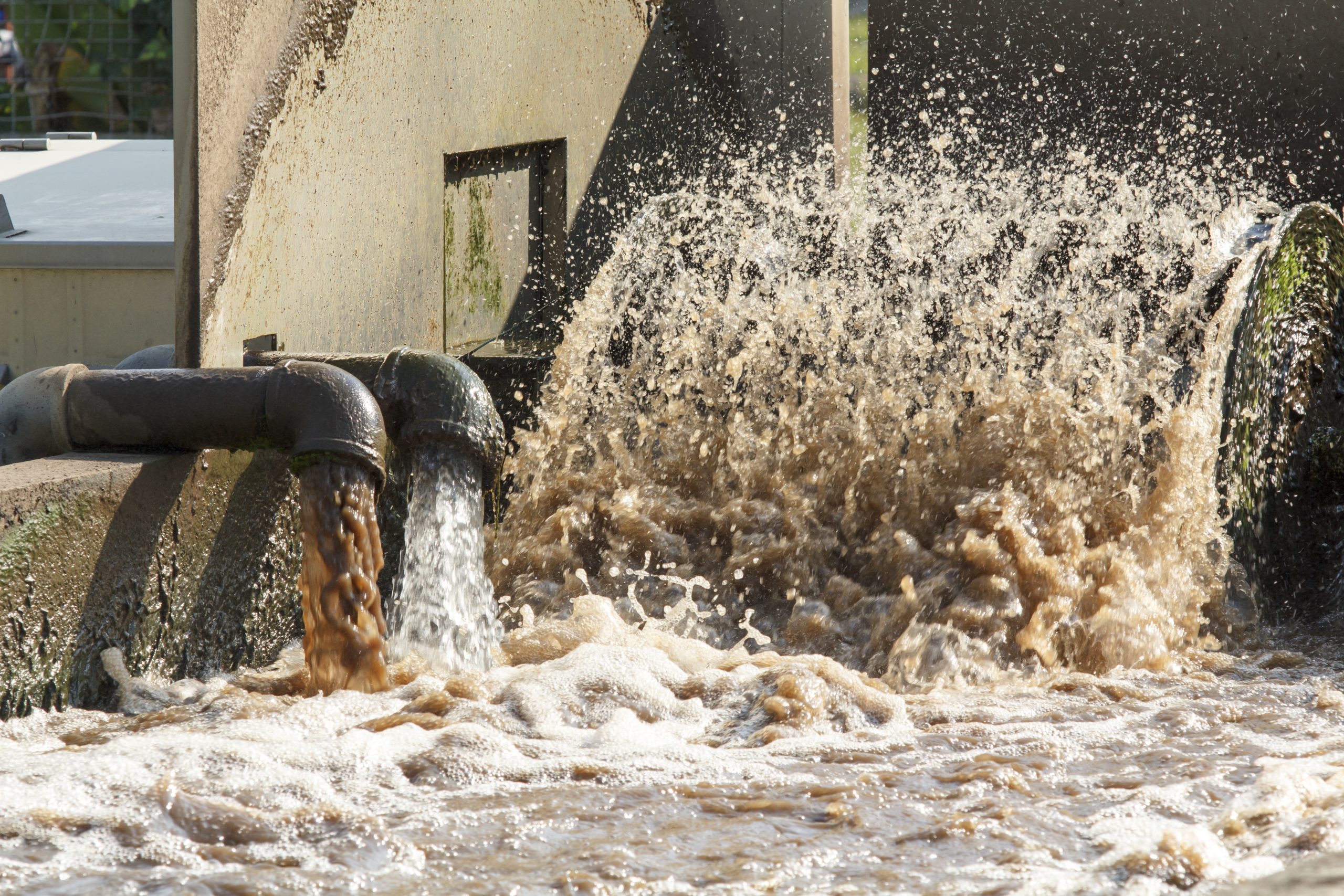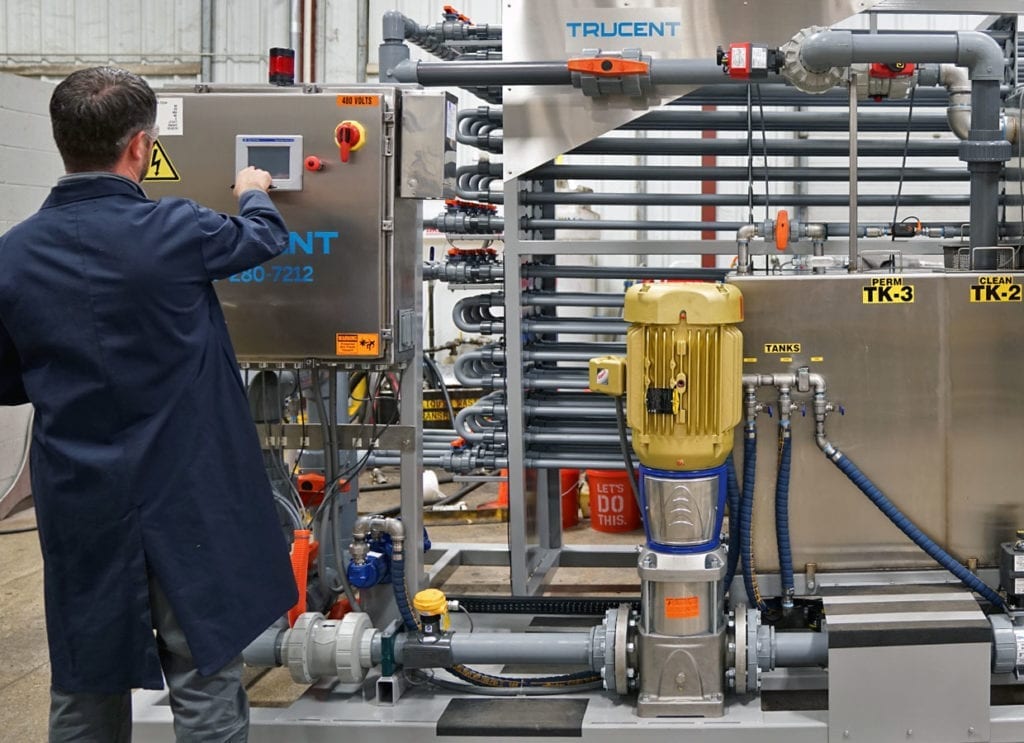Industrial Waste Water Treatment-- Sustainable Solutions for Industrial Water Management
Industrial Waste Water Treatment-- Sustainable Solutions for Industrial Water Management
Blog Article
Obstacles and Solutions in Industrial Waste Water Therapy
The treatment of industrial wastewater offers a complex variety of challenges, varying from rigorous regulative compliance to the complexities of cost monitoring and technical restrictions. The variability in waste composition better makes complex the efficiency of conventional treatment approaches, commonly resulting in intensified operational expenses.
Regulatory Compliance Challenges
Just how can industrial centers navigate the complicated landscape of regulatory compliance in wastewater therapy? The regulatory structure governing wastewater administration is complex, commonly differing by jurisdiction and kind of industry.
To efficiently take care of these compliance difficulties, centers ought to carry out durable monitoring and reporting systems that make certain real-time data collection and analysis. Routine audits and threat assessments can determine possible conformity gaps, permitting aggressive adjustments in treatment procedures. Staff member training programs concentrating on regulatory understanding and ideal techniques are important to promote a society of conformity within the company.
Furthermore, involving with regulative firms can offer valuable understandings and clarify uncertain regulations. Facilities might also gain from seeking advice from environmental specialists who concentrate on wastewater treatment compliance, making sure that they stay informed of developing laws. By adopting these methods, commercial facilities can not only fulfill compliance requirements however additionally enhance their operational performance and environmental stewardship.
Cost and Financial Obstacles
Browsing regulatory compliance in wastewater therapy often presents considerable economic obstacles for industrial facilities. The expenses connected with executing needed therapy modern technologies, maintaining compliance with strict guidelines, and taking care of functional expenditures can be daunting. Many organizations face high initial resources expenditures for the building and construction or upgrading of wastewater treatment plants, which may strain budget plans, particularly for medium-sized and tiny ventures.
Furthermore, ongoing operational prices, consisting of chemical, labor, and upkeep inputs, contribute to the monetary concern. The unpredictability of varying energy prices and the potential demand for added financial investments to satisfy progressing guidelines worsen these economic pressures. In a lot of cases, the lack of financial motivations or assistance from government bodies makes it much more tough for organizations to validate investments in advanced therapy systems.
Furthermore, the economic viability of wastewater therapy options is typically questioned, specifically for sectors with tight profit margins. Consequently, it is important for industrial centers to check out affordable strategies, such as taking on innovative funding choices, participating in collaborations, and leveraging emerging modern technologies that can assist mitigate these financial barriers while making sure compliance with ecological standards.

Technological Limitations
Many technological constraints impede the effectiveness of commercial wastewater treatment procedures. One significant obstacle is the inadequacy of existing therapy technologies to resolve complicated impurities.
Furthermore, the scalability of therapy technologies postures a challenge. While some innovative methods, like membrane layer filtration or sophisticated oxidation, reveal guarantee in regulated environments, their execution on a bigger scale can be technically difficult and much too expensive. Maintenance and functional intricacies even more make complex the fostering of these systems, especially for smaller sectors with minimal technical experience.
The integration of real-time tracking modern technologies additionally remains inadequate in lots of therapy facilities. Without effective tracking systems, drivers can not adequately evaluate try this treatment effectiveness or identify potential failures, resulting in inconsistent effluent high quality. Subsequently, resolving these technical limitations through research and development, along with financial investment in cutting-edge solutions, is essential for improving the effectiveness of commercial wastewater treatment and guaranteeing regulative compliance. Industrial Waste Water Treatment.
Irregularity in Waste Structure
In the realm of commercial wastewater therapy, the irregularity in waste structure presents an awesome difficulty. Industries produce wastewater with diverse characteristics, affected by aspects such as production procedures, basic materials, and operational practices. This diversification makes complex the treatment process, as traditional systems typically battle to properly address the variety of pollutants existing.
For circumstances, wastewater from food processing might have high levels of organic issue, while effluents from chemical manufacturing could consist of dangerous substances and hefty metals. This variance demands adaptable therapy methods to ensure conformity with environmental guidelines and safeguard public wellness. Furthermore, find more information fluctuations in waste make-up can happen with time, influenced by adjustments in production timetables, maintenance activities, or the intro of new items.

Ingenious Therapy Solutions
Ingenious therapy services are crucial for attending to the intricacies of industrial wastewater monitoring. Conventional approaches frequently drop short in efficiently getting rid of a vast array of contaminants, especially in centers with diverse effluent streams. Recent innovations concentrate on integrating sophisticated technologies to check out here improve therapy efficiency and sustainability.
One appealing strategy is making use of sophisticated oxidation processes (AOPs), which utilize powerful oxidants to deteriorate natural toxins. AOPs, consisting of photocatalysis and ozonation, can dramatically reduce harmful substances and improve effluent top quality. Additionally, membrane bioreactor (MBR) modern technology has actually obtained traction, integrating organic treatment with membrane layer filtering, leading to top quality effluent and lowered impact.
Another innovative remedy is the application of source healing systems. Strategies like anaerobic food digestion not only treat wastewater but additionally create biogas, which can be utilized as a renewable resource source. The adoption of synthetic intelligence and machine discovering models can enhance therapy processes by forecasting variations in wastewater make-up, thereby enhancing functional efficiency.
These ingenious options not only address regulative conformity but likewise advertise environmental sustainability, leading the method for an extra resilient and effective industrial ecological community.
Verdict
In final thought, attending to the difficulties of commercial wastewater treatment needs a diverse technique that incorporates governing compliance, cost administration, and technical innovations. Cutting-edge solutions, such as advanced oxidation processes and membrane bioreactor innovation, deal paths to enhance therapy performance. Furthermore, real-time monitoring systems and collective engagement with regulatory companies can promote sustainable practices while reducing financial pressures. A dedication to constant improvement in treatment approaches will ultimately contribute to the efficient monitoring of commercial wastewater and environmental management.
The treatment of industrial wastewater offers a complex variety of challenges, varying from rigorous regulative conformity to the complexities of cost management and technological restrictions. Industrial Waste Water Treatment.Navigating governing compliance in wastewater therapy typically offers considerable economic challenges for commercial centers. Addressing these technical constraints via study and advancement, together with investment in cutting-edge remedies, is critical for boosting the effectiveness of commercial wastewater treatment and making certain regulatory conformity
Wastewater therapy centers must spend in durable tracking systems and versatile treatment innovations capable of accommodating varying influent attributes.In final thought, addressing the challenges of commercial wastewater treatment requires a complex method that incorporates regulatory conformity, cost monitoring, and technical innovations.
Report this page